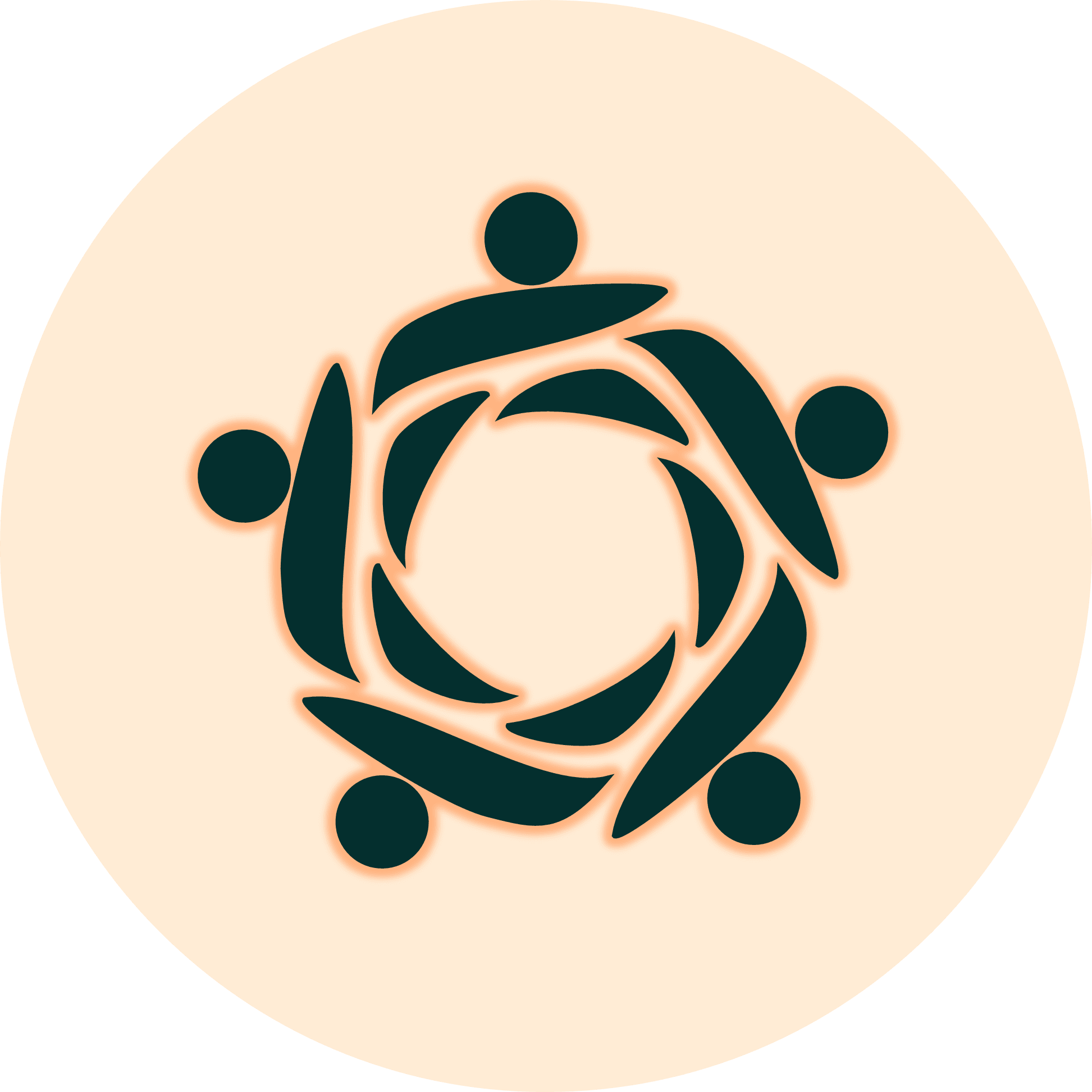Ligne directrice individuelle
Cultivez la confiance sociale en vous et chez les autres
Parfois, la façon dont nous nous percevons, nous-mêmes et les autres, rend les interactions sociales intimidantes et difficiles. Ces sentiments sont normaux et peuvent être surmontés.
- Soyez ouvert aux interactions sociales et aux connexions avec les autres.
- Commencez par de petites étapes et cherchez des moyens accessibles d’élargir votre capacité à interagir.
- Faites preuve de compassion envers vous-même et envers les autres.
- Sachez qu’il faut souvent du temps pour améliorer votre bien-être social.
- Si vous avez du mal à surmonter des pensées ou des sentiments négatifs à votre sujet ou concernant vos interactions sociales, cherchez du soutien, notamment auprès de professionnels de la santé mentale qualifiés si possible.



Considérations supplémentaires
La cognition sociale, ou la manière dont nous pensons et ressentons à propos de nous-mêmes et des autres, joue un rôle important dans la façon dont nous percevons et naviguons dans nos vies sociales. Cette cognition englobe les processus mentaux par lesquels nous interprétons, analysons, mémorisons et utilisons l'information sur notre environnement social. Parfois, nous éprouvons tous des cognitions sociales qui rendent l'interaction sociale difficile. Nous pouvons nous sentir mal à propos de nous-mêmes et supposer que les autres se sentent de la même manière. Nous pourrions supposer que les autres ne nous aiment pas alors qu'en réalité, ils ont des sentiments très positifs.
En effet, les recherches suggèrent que la plupart d'entre nous ont des difficultés à comprendre précisément les pensées et les émotions des autres. Nous ne sommes pas très bons pour lire dans les pensées. Cette difficulté mène souvent à des suppositions qui peuvent être loin de la vérité, surtout lorsque nous nous attendons habituellement à des jugements ou des réactions négatives. Ces suppositions erronées peuvent alimenter l'anxiété et l'inconfort social, créant des barrières à une véritable connexion. Pour contrer cela, il est essentiel de favoriser une communication claire et d'encourager des échanges ouverts de pensées et de sentiments. En cherchant activement à comprendre les autres plutôt qu'en supposant, nous pouvons dissiper les malentendus et cultiver des relations plus authentiques.
De plus, adopter un état d'esprit positif avant et après les interactions sociales peut modifier de manière significative nos expériences. Au lieu de catastrophiser ou de craindre les pires résultats, envisager des scénarios positifs peut transformer nos attentes, de l'anxiété et de la crainte vers l'anticipation d'engagements agréables et enrichissants. Ce changement de perspective réduit non seulement l'anxiété, mais améliore également la qualité de nos interactions sociales, les rendant plus épanouissantes et moins intimidantes. En réorientant consciemment nos pensées et en pratiquant la visualisation positive, nous pouvons aborder les situations sociales avec confiance, ouverture et une plus grande capacité à établir des connexions significatives.
Ressources supplémentaires

Cahier d’exercices pour surmonter l’anxiété sociale
Propose des stratégies pratiques pour gérer l’anxiété sociale. Il comprend des modules sur la compréhension des symptômes, la remise en question des pensées négatives et l’amélioration des interactions sociales. Des ressources comme des feuilles de travail sur l’affirmation de soi et des techniques de relaxation sont également disponibles en téléchargement.

Une plateforme numérique qui améliore le bien-être émotionnel grâce à des activités et jeux basés sur la science. Elle utilise la psychologie positive, la TCC et la pleine conscience pour offrir des parcours personnalisés axés sur la gestion du stress, le développement personnel et le renforcement de la résilience.

Une application de méditation et de pleine conscience conçue pour améliorer le bien-être mental. Elle propose des méditations guidées, des aides au sommeil et des exercices de pleine conscience adaptés à divers besoins, comme la réduction du stress et la gestion de l’anxiété, convenant à tous les niveaux d’expérience.

Aide à gérer l’anxiété grâce à des techniques de thérapie cognitivo-comportementale. Développée par Anxiety Canada, elle propose des outils tels que des méditations guidées, des exercices de relaxation et des stratégies pour l’anxiété sociale, les inquiétudes et le perfectionnisme.

Une application qui favorise le bien-être mental grâce à des techniques de pleine conscience et de relaxation. Elle propose des méditations guidées, des histoires pour s’endormir et des exercices de respiration afin de gérer le stress, améliorer le sommeil et accroître la concentration, convenant à tous les niveaux d’utilisateurs.

Cahier d’exercices de l’autocompassion en pleine conscience
Par Kristin Neff et Christopher Germer, ce livre guide les lecteurs dans le développement de la compassion envers soi-même à travers des pratiques de pleine conscience. Il comprend des exercices et des méditations pour renforcer la résilience et gérer le stress, l'anxiété et l'autocritique.

Cahier d’exercices d’auto-assistance en TCC pour l’estime de soi chez les adultes
Offre des outils pour développer une estime de soi saine en utilisant des techniques de TCC. Il propose des exercices pour remettre en question les pensées négatives, améliorer la valeur de soi et favoriser une mentalité résiliente.

Par le Dr David Carbonell, ce livre offre des outils pour gérer l'anxiété en la transformant en force. Il combine des techniques de TCC avec de l'humour, en proposant des étapes concrètes pour réduire l'impact de l'anxiété sur la vie quotidienne.

La solution à l’anxiété sociale
Par le Dr Aziz Gazipura, ce livre guide les individus pour surmonter l'anxiété sociale en utilisant des techniques de TCC. Il comprend des exercices et des exemples concrets pour développer la confiance en soi et les compétences sociales.

Par le Dr Ellen Hendriksen, ce livre propose des techniques pour surmonter l'anxiété sociale. Il offre des stratégies pour reformuler les pensées négatives, développer la confiance en soi et naviguer efficacement dans les situations sociales.

Cahier d’exercices sur l’anxiété et les préoccupations
Par le Dr David A. Clark et le Dr Aaron T. Beck, ce livre propose des exercices basés sur la TCC pour gérer l'anxiété. Il comprend des outils pratiques pour comprendre les déclencheurs, développer des stratégies d'adaptation et réduire l'anxiété.

Cahier d’exercices sur la pleine conscience et l’acceptation pour l’anxiété
Offre un guide complet pour gérer l'anxiété en utilisant la thérapie d'acceptation et d'engagement (ACT). Il propose des exercices de pleine conscience et des outils pour favoriser une vie équilibrée.

Une plateforme en ligne pour des services de santé mentale accessibles. Elle connecte les utilisateurs à des thérapeutes agréés pour un soutien flexible via des appels vidéo, des chats ou des messages, offrant une option confidentielle et abordable pour la thérapie.

Une organisation de formation aux compétences sociales qui combine des techniques de thérapie cognitivo-comportementale avec des ateliers pour aider les individus à développer leur confiance en soi et leurs compétences en communication. Elle offre des outils pratiques pour surmonter l'anxiété sociale et améliorer la présence sociale.

